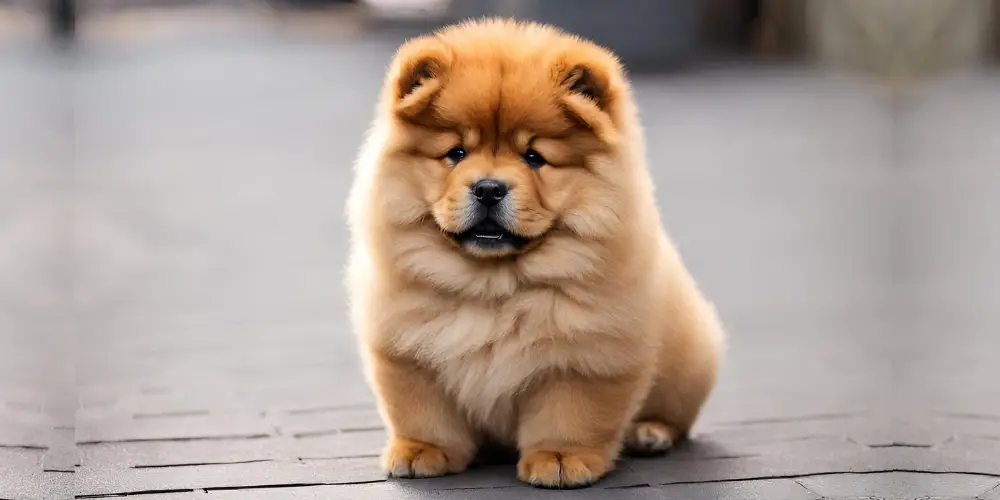Discover the world of Teacup Chow Chow, where the grandeur of the Chow Chow meets a more petite form.
This guide covers everything from selection to care, ensuring you’re fully equipped to welcome these charming companions into your life.
Let’s dive in!
A Quick Glance:
| Characteristic | Details |
|---|---|
| Height | 6-8 inches at the shoulder |
| Weight | 8-15 pounds |
| Lifespan | 12-15 years |
| Colors | Red, black, blue, cinnamon, cream |
| Temperament | Independent, loyal, aloof, dignified |
| Suitable For | Families, singles, experienced dog owners |
Understanding Teacup Chow Chows
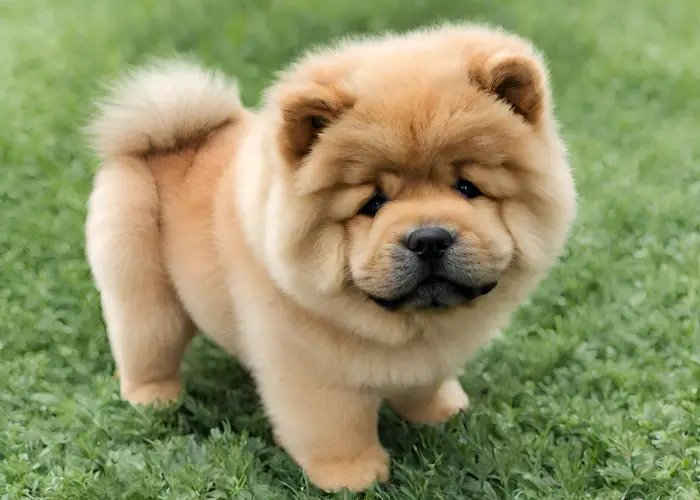
Teacup Chow Chows, a miniature version of the standard Chow Chow, is a marvel in the canine world. While they are not recognized as a separate breed, their unique size sets them apart.
Typically, a Teacup Chow Chow weighs between 8 and 15 pounds, significantly smaller than the standard Chow Chow, which can weigh anywhere from 45 to 70 pounds.
It’s important to note that major kennel clubs do not recognize the concept of “teacup” or “mini” breeds and is often associated with unscrupulous breeding practices.
Physical Characteristics
- Size: The most distinguishing feature of a Teacup Chow Chow is its size. They are compact and easily carried, making them ideal for apartment living or those with limited space.
- Coat: Like their larger counterparts, they have a dense double coat in various colors like brindle, tan, cream, white, brown, red, black, blue, and cinnamon.
- Facial Features: They retain the distinctive lion-like mane and deep-set almond eyes, giving them a regal and unique appearance.
Temperament
Teacup Chow Chows are known for their aloof and independent nature. They are less likely to seek constant attention than other small breeds but are deeply loyal to their families.
They can be reserved around strangers, making early socialization crucial to developing a well-rounded temperament.
Breed History and Popularity
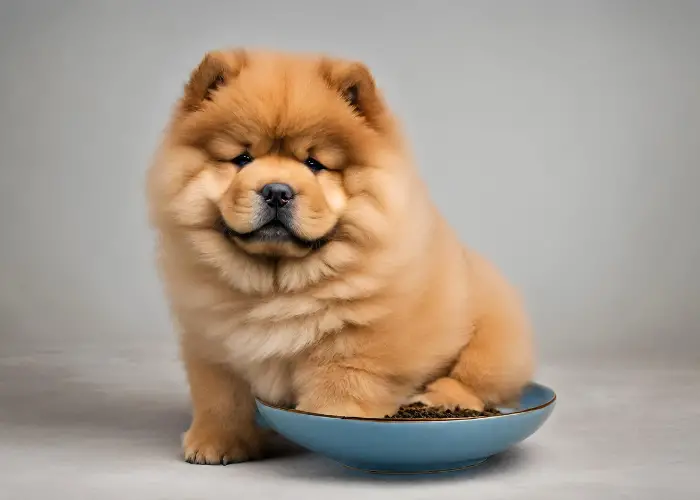
The Chow Chow breed hails from Northern China, where they were revered as a symbol of nobility and were used for hunting, guarding, and pulling sleds.
The Teacup variety has gained popularity in recent years due to its suitability for urban living and its unique appearance that retains all the majestic qualities of the standard Chow Chow in a smaller package.
Considerations for Potential Owners
- Prospective owners should know that their small size does not mean they are a ‘toy’ breed.
- They require the same respect, care, and training as standard-sized Chow Chows.
- They have a high shedding level and are not hypoallergenic.
- Their thick coat requires regular grooming to prevent matting and to maintain their distinctive appearance.
Choosing a Teacup Chow Chow
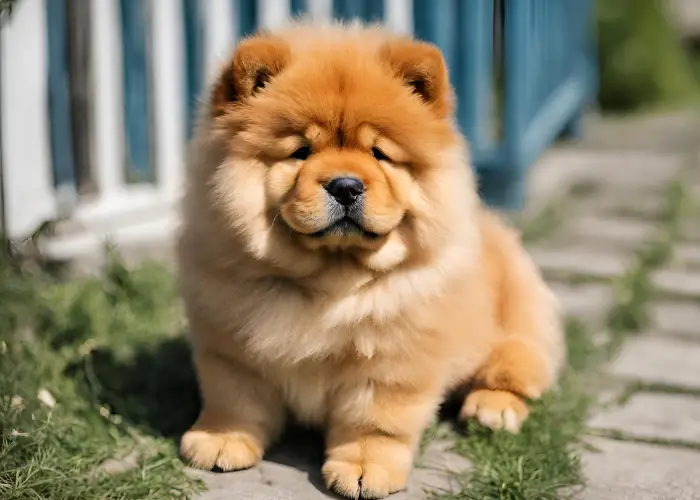
Selecting a Teacup Chow Chow is a decision that should be considered carefully. These unique dogs require owners who understand their specific needs.
Finding a Reputable Breeder
- Research: Start by researching breeders who specialize in Teacup Chow Chows. Look for transparent breeders about their breeding practices and prioritize their dogs’ health and well-being.
- Health Clearances: Ensure the breeder provides health clearances for both parents, which is crucial in avoiding common genetic health issues.
- Visit: If possible, visit the breeder’s facility. This lets you see how the puppies are raised and interact with the parent dogs.
Understanding the Breed’s Needs
- Temperament: While Teacup Chow Chows are smaller, they retain the dignified and independent temperament of the standard Chow Chow. They are not typical lap dogs and will require owners who respect their autonomy.
- Socialization: Early socialization is key. Introduce your Teacup Chow Chow to various people, pets, and environments to ensure they grow into well-adjusted adults.
Considerations Before Adoption
- Lifestyle Fit: Assess whether a Teacup Chow Chow fits your lifestyle. They require regular grooming and exercise, and while they are suitable for apartment living, they are not a low-maintenance breed.
- Long-term Commitment: Owning a Teacup Chow Chow is a long-term commitment. They can live up to 8-12 years, requiring ongoing care and attention.
Questions to Ask the Breeder
- Ask about the puppy’s health history and any vaccinations or treatments they have received.
- Inquire about the puppy’s diet and any specific nutritional needs they may have.
- Discuss the puppy’s temperament and any socialization they have received.
Caring for Your Teacup Chow Chow
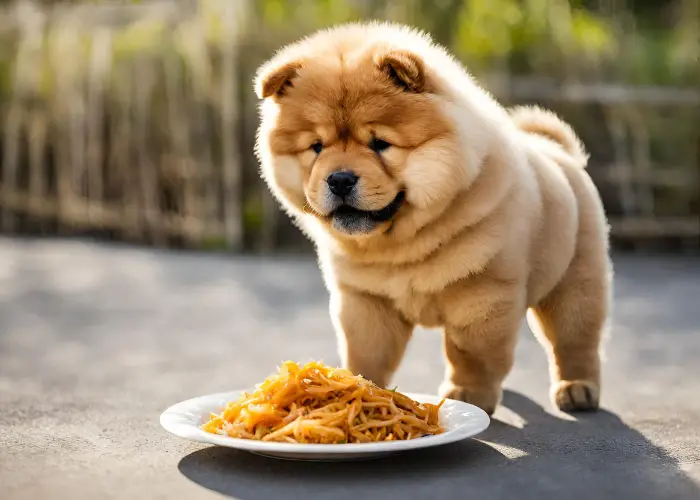
Proper care is essential for the health and happiness of your Teacup Chow Chow. Despite their small size, they have specific needs crucial for their well-being.
Diet and Nutrition
- Balanced Diet: Teacup Chow Chows require a well-balanced diet appropriate for their size and energy level. High-quality dog food that is rich in nutrients is recommended.
- Feeding Schedule: Consistent feeding times and controlled portions are important to prevent obesity, a common issue in smaller breeds.
- Special Dietary Needs: Be aware of any special dietary needs or allergies your Teacup Chow Chow may have and consult a veterinarian for a diet plan.
Exercise Requirements
- Regular Exercise: Despite their small stature, Teacup Chow Chows need regular exercise to maintain their health and prevent boredom. Daily walks and playtime are essential.
- Mental Stimulation: Mental stimulation is as important as physical exercise. Puzzle toys and training sessions can keep their mind active.
Grooming and Hygiene
- Coat Care: Their dense double coat requires regular grooming. Brushing several times weekly and professional grooming every few months will keep their coat in good condition.
- Bathing: Bathe your Teacup Chow Chow every few weeks or as needed. Use a dog-specific shampoo to protect their skin and coat.
- Nail Trimming and Dental Care: Regular nail trimming and dental care are important to prevent overgrowth and dental issues.
Health Check-ups
- Regular veterinary check-ups are crucial to monitor their health and to keep up with vaccinations and parasite control.
Health and Wellness
Teacup Chow Chows, like all breeds, have specific health considerations that owners should be aware of to ensure a long, healthy life for their pets.
Common Health Issues
- Hip Dysplasia: Although less common in smaller dogs, canine hip dysplasia can still occur. Regular check-ups can help in early detection and management.
- Eye Problems: Teacup Chow Chows may be prone to certain eye conditions like glaucoma and entropion. Regular eye exams are recommended.
- Dental Health: Due to their smaller mouths, they can be prone to dental issues. Regular dental check-ups and cleanings are important.
Preventative Care
- Vaccinations and Parasite Control: Stay up-to-date with vaccinations and ensure regular treatments for parasites like fleas and ticks.
- Regular Vet Visits: Regular vet visits are crucial for early detection and treatment of potential health issues.
Healthy Lifestyle Tips
- Weight Management: Keep an eye on their weight to prevent obesity, which can lead to other health problems.
- Exercise and Diet: A balanced diet and regular exercise are vital to maintaining good health.
Training and Socialization
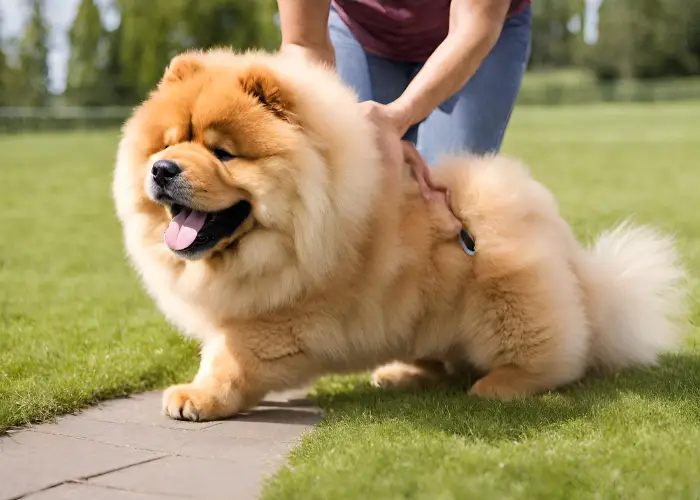
Training and socialization are crucial in shaping the temperament and behavior of your Teacup Chow Chow.
Training Tips
- Positive Reinforcement: Use positive reinforcement techniques. Teacup Chow Chows respond well to rewards and praise.
- Consistency: Consistency in training is key. Regular, short training sessions are more effective.
- Socialization: Expose them to different people, pets, and environments early on to ensure they are well-adjusted.
Addressing Behavioral Issues
- Independence: They are known for their independence, so training may require patience.
- Early Intervention: Address any signs of behavioral issues early with the help of a professional if needed.
Living with a Teacup Chow Chow
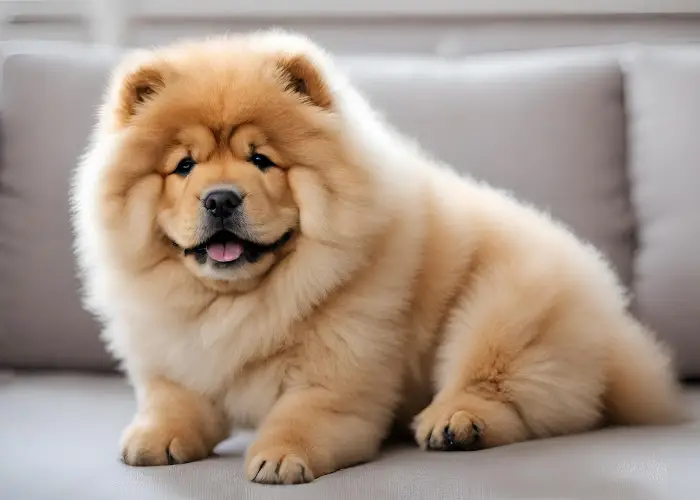
Understanding the unique aspects of living with a Teacup Chow Chow will help create a harmonious home environment.
Daily Life and Activities
- Routine: Establish a routine for feeding, exercise, and playtime.
- Space: Provide a safe and comfortable space for your Teacup Chow Chow to relax and sleep.
Creating a Comfortable Environment
- Safety: Ensure your home is safe for a small dog, with no areas where they could get hurt or stuck.
- Comfort: Provide comfortable bedding, toys, and access to clean water.
Bonding and Interaction
- Quality Time: Spend quality time with your Teacup Chow Chow. They may be independent, but they still value companionship.
- Activities: Engage in activities you and your Teacup Chow Chow enjoy, like walks or playtime.
Conclusion
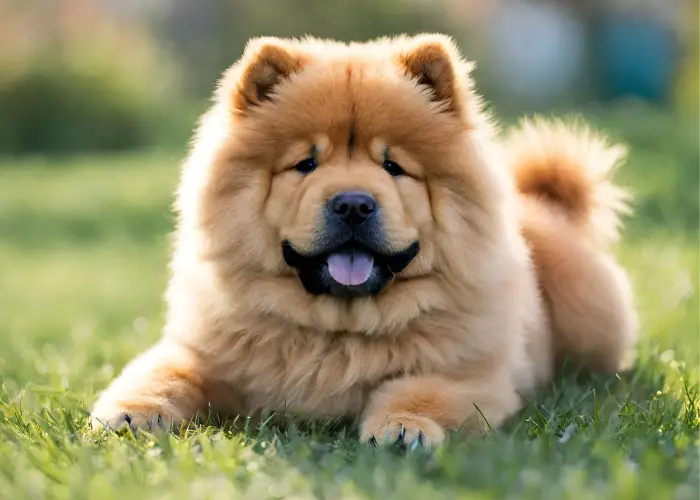
Owning a Teacup Chow Chow is a unique and rewarding experience that brings joy and companionship into your life.
These miniature versions of the majestic Chow Chow offer all the personality and dignity of their larger counterparts wrapped in a smaller, more manageable package.
However, it’s important to remember that they are not just adorable pets; they are a commitment that requires time, effort, and understanding.
From their specific dietary needs and grooming requirements to their health considerations and training, Teacup Chow Chows demand responsible and informed pet ownership.
Regular veterinary check-ups, a balanced lifestyle, and consistent training and socialization ensure your Teacup Chow Chow leads a healthy, happy, and well-adjusted life.
As you embark on this journey with your Teacup Chow Chow, cherish every moment.
The bond you will form with this loyal and affectionate breed is truly special. With the right care, a Teacup Chow Chow can be more than just a pet; they can be a beloved family member, bringing love, laughter, and a touch of regal elegance to your home.
References:
- Yang, H., Wang, G., Wang, M., Ma, Y., Yin, T., Fan, R., Wu, H., Zhong, L., Irwin, D. M., Zhai, W., & Zhang, Y. (2017). The origin of chow chows in the light of the East Asian breeds. BMC Genomics, 18. https://doi.org/10.1186/s12864-017-3525-9
- Wilcox, Charlotte (April 1, 1999). The Chow Chow

